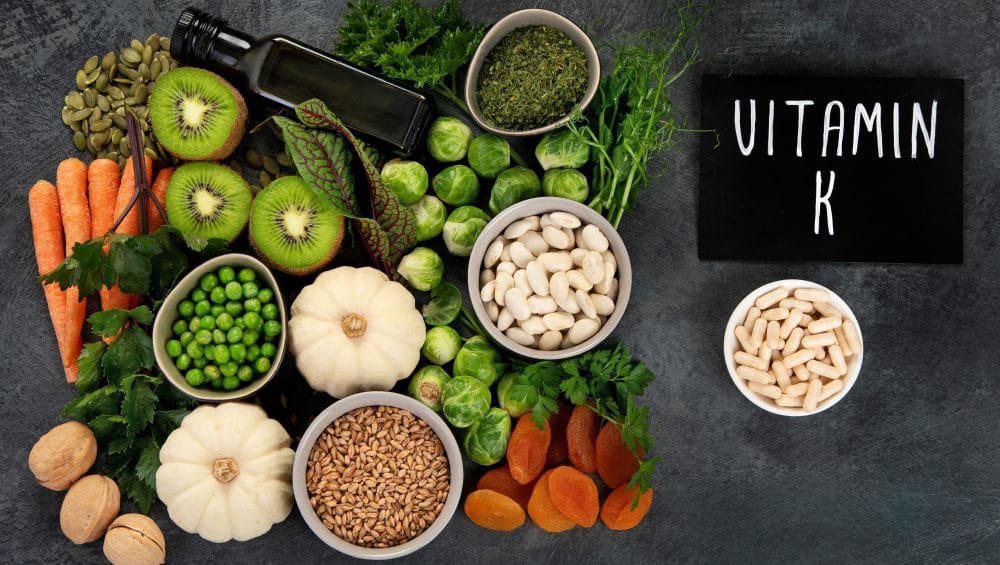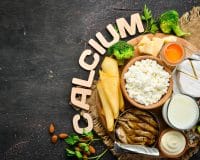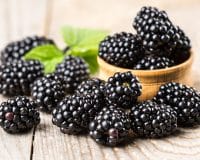7 Great Health Perks Of Vitamin K
Do you take a multivitamin every day? Even if you do, your vitamin regimen may be missing an important nutrient – vitamin K. This little-known vitamin has some amazing health benefits, which is why it’s vital to make sure that you’re getting enough of it. In this article, we will discuss seven health benefits of vitamin K that may surprise you. Keep reading to learn more.
Vitamin K is a simple method to enhance your health and avoid a variety of medical issues. Simply take a vitamin K supplement or eat foods that are high in vitamin K daily to gain these benefits. Leafy green vegetables, cheese, and liver are all good choices. Once you have finished reading, you will be able to take advantage of the health benefits of vitamin K.

1Prevents Varicose Veins
Many people suffer from varicose veins as they get older. This is because their circulatory system is not working properly anymore due to age or other factors, like pregnancy. These unsightly veins can cause discomfort, pain, and embarrassment.
Vitamin K supplements are a straightforward approach to reducing your chances of getting varicose veins. Vitamin K helps control calcium levels in the body, preventing them from accumulating and eventually causing blood vessels to weaken over time. This can lead to a host of other problems, like wrinkles, varicose veins, and even cancer.

2Regulates Blood Sugar
Vitamin K plays an important role in regulating blood sugar levels by helping insulin work more efficiently and promoting glucose uptake from food into cells where it’s needed for energy production or storage as fat (which then gets burned off later). The result of this process is fewer spikes throughout your day. This results in more stable energy levels over time.
Taking vitamin K supplements could help people with diabetes. Vitamin K supplements might help people search for methods to naturally regulate their blood sugar without taking medicines. In one study, Type II diabetics who took 1000 IU/day for one year saw their fasting glucose levels drop from 159 mg/dl to 115 mg/dl after taking vitamin K.

3It Prevents Cancer
One of the most impressive benefits of vitamin K is its ability to prevent cancer. Vitamin K helps regulate the cell cycle and prevent the formation of tumors. It also helps inhibit angiogenesis, which is the process by which tumors create new blood vessels to support their growth.
The formation of tumors is a very vital process in the body. However, when it goes wrong, and they stop being controlled by the cell cycle, this can lead to cancer. Vitamin K is a molecule that’s important for blood clotting and bone health. It seems to also protect against certain types of cancer, including liver, breast, prostate, and colon cancers.

4It Prevents Wrinkles
Another benefit of vitamin K is that it helps prevent wrinkles. This is because vitamin K regulates the production of collagen, which is a protein found in the skin that gives it elasticity. Vitamin K also helps repair existing damage to collagen fibers and promotes healing. It’s no secret that as we age, our skin starts to show signs of wear and tear. One of the most common problems is wrinkles – those pesky lines that seem to appear out of nowhere and make us look older than we are.
You can reduce the appearance of wrinkles by taking vitamin K. This little-known vitamin helps regulate the production of collagen fibers, which gives your skin elasticity and prevents it from sagging. It also helps repair existing damage and promotes healing.

5Increases Exercise Performance
One of the most impressive benefits of vitamin K is that it can increase your exercise performance. This is because vitamin K helps regulate blood clotting and prevent muscle cramps. These are common problems for people who work out or play sports regularly.
It’s no secret that as we age, our bodies don’t function as well as they used to when it comes to physical activity. One of the most common problems is muscle cramps – those sudden, painful contractions that can stop you in your tracks. But what many people don’t know is that there’s a simple way to reduce the likelihood of getting muscle cramps – take vitamin K supplements.

6Prevents Kidney Stones
Kidney stones are another common problem that can occur as you age. These painful little stones form when salts and minerals in your urine crystallize. This can result in a blockage that may cause significant suffering and discomfort.
By taking vitamin K supplements, you can reduce the likelihood of getting kidney stones. Without vitamin K, calcium can build up in the body and form stones. Vitamin K helps regulate levels of calcium in the body, preventing it from building up inside your kidneys and forming stones.

7Prevents Brain Damage
One of the lesser-known benefits of vitamin K is that it helps prevent brain damage. This is because vitamin K helps maintain healthy levels of glutamate, which is a vital neurotransmitter for cognitive function. When levels of glutamate become too high, they can cause neurons in the brain to die, leading to permanent damage.
There is a straightforward approach to minimizing the risk of brain damage by taking vitamin K supplements. Many people are unaware of that. Vitamin K helps regulate levels of glutamate, preventing them from becoming too high and causing neurons in the brain to die.

Even if you take a multivitamin daily, you might be missing out on an essential vitamin – vitamin K. This little-known vitamin offers some incredible health advantages, so it’s critical to ensure that you’re obtaining enough of it. In this article, we discussed the health benefits of vitamin K that may surprise you.
Taking vitamin K is an easy way to improve your health and prevent many health problems from occurring. All you need to do is take a daily supplement or eat foods that are high in vitamin K. Some good options include leafy green vegetables, cheese, and liver. Now that you have finished reading, you can take advantage of the health benefits of vitamin K.














